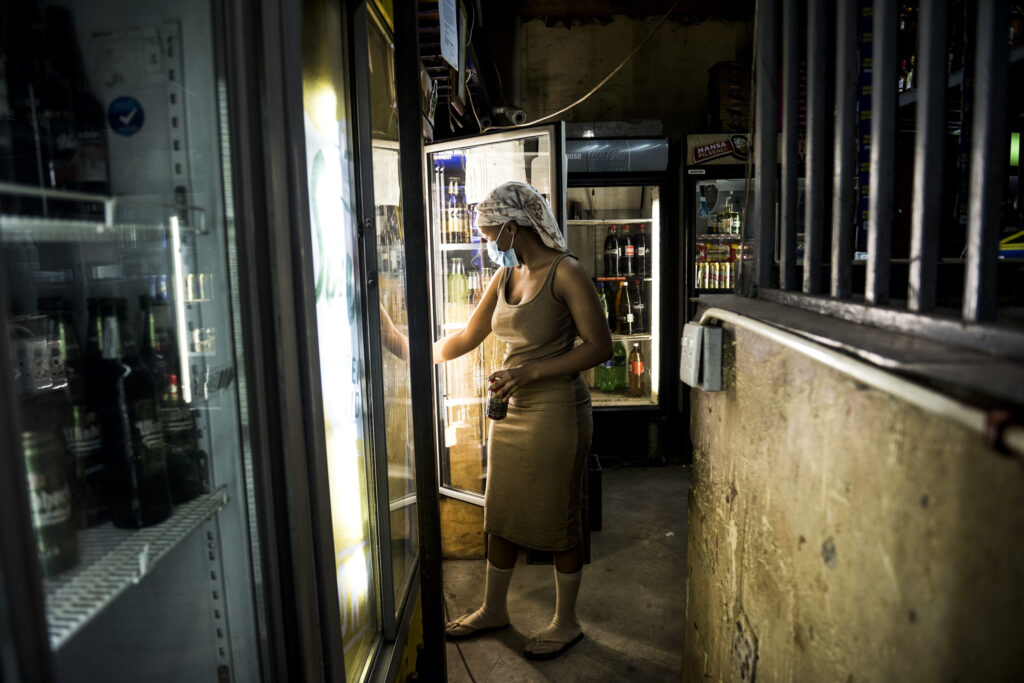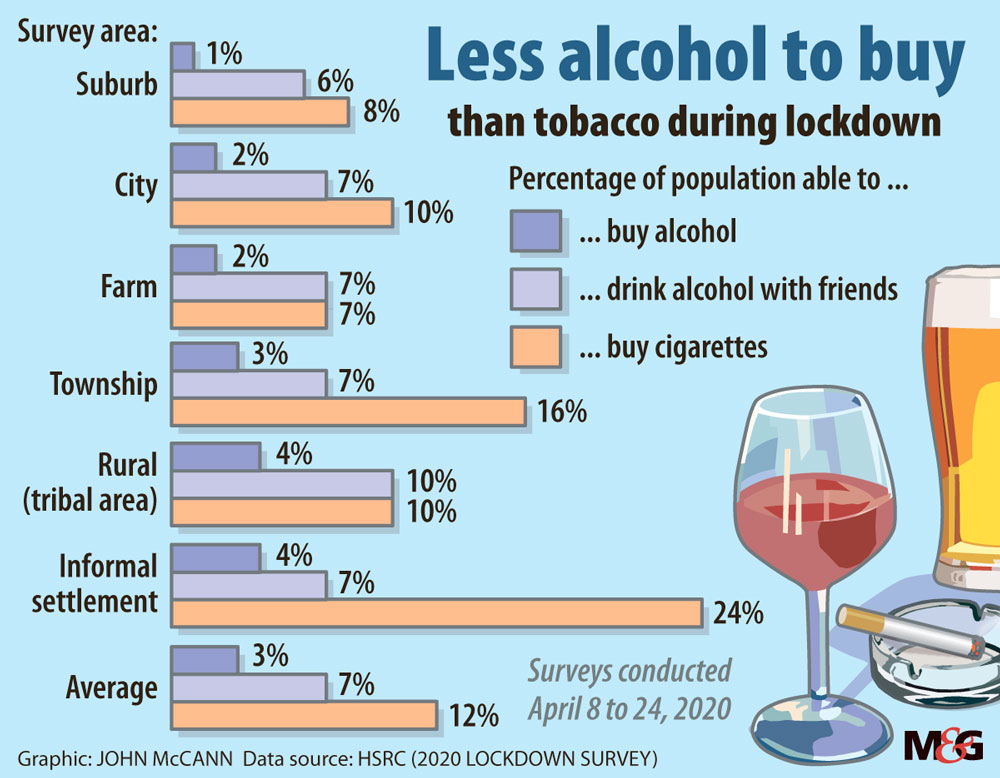Phillimon Mojale is the owner of Mojale Place, a tavern in Ivory Park township, north of Johannesburg. (Delwyn Verasamy/M&G)
Phillimon Mojale, 63, is grateful to be alive after contracting Covid-19 last month. The owner of Mojale Place, a tavern in Ivory Park township, north of Johannesburg, was rushed to hospital for what he thought were issues related to his heart condition.
When he arrived at Tembisa Hospital at 10pm, along the passage were rows of sick people “who were all Covid-19 patients”.
“The nurse told me that there are a lot of coronavirus [infections] here in Ivory Park and even though I did not have symptoms, I would get tested,” he says.
Mojale suspects he contracted Covid-19 soon after traders were permitted to sell alcohol under level 3 of the government’s risk adjusted strategy. Many of his customers let their guard down once they had “one or two drinks in their system”, he says.
“That first week when alcohol was allowed, I had to sit here the whole day to sanitise [their hands] and they also didn’t come with masks. I ended up contracting the coronavirus myself and lay in bed for two weeks.”
Mojale has 13 fridges full of alcohol in storage and “most of the stock will expire” before it can be sold. He has been tempted to sell the stock in the area’s “thriving” underground market but did not because a “regulation is a regulation”.
 In a letter to President Cyril Ramaphosa, tavern owners said alcohol sales should be allowed “to save a million livelihoods”. (Photo: Delwyn Verasamy/M&G)
In a letter to President Cyril Ramaphosa, tavern owners said alcohol sales should be allowed “to save a million livelihoods”. (Photo: Delwyn Verasamy/M&G)
Since the reinstatement of the ban on alcohol sales earlier this month, he has had to sell soft drinks, which account for less than one percent of his usual revenue. Mojale estimates that his tavern has lost R140 000 in revenue since alcohol sales were banned for the second time.
Although Mojale agrees that irresponsible and excessive alcohol consumption is a nationwide problem — especially as the country fights against the virus spreading — he says the ban on the sale of alcohol has wiped out his livelihood.
Before sale of alcohol was banned in stages 5 and 4 of the lockdown, Mojale employed 12 people. The number of employees was reduced to three when the ban was lifted. Now he has had to let go of all employees because he can’t pay them.
Mojale is one of 34 500 tavern owners who this week renewed their calls to have the ban on the sale of alcohol lifted. In a letter to President Cyril Ramaphosa, tavern owners said alcohol sales should be allowed “to save a million livelihoods”.
The letter, which was also signed by the National Liquor Traders Council (NTLC), Business Leadership South Africa, the Restaurant Association of South Africa and the Liquor Traders Association of South Africa, is calling for a partnership with the government to address problems linked to irresponsible alcohol consumption and the negative effect of the sales ban on the sector.

The letter adds that “for every month that alcohol is suspended, our government loses approximately R4.2-billion in excise duty and VAT (the previous 10-week suspension has potentially cost over R10-billion in lost revenue)”.
The NTLC’s spokesperson, Lucky Ntimane, says only 15% of the organisation’s members could reopen their doors after the hard lockdown. He says taverns nationwide lost an estimated R8-billion during level 4 and 5 of the lockdown and the reinstatement of alcohol ban would further slash revenues and lead to more businesses closing permanently.
The Food and Allied Workers Union, which represents about 10 000 workers in the alcohol industry, has also called for the ban to be lifted. The union expects the industry to implement a 10% cut in worker salaries over the next 18 months.
The pandemic is expected to peak in the next few weeks.
There have been 394 948 Covid-19 cases as of July 23 and the government says the ban on alcohol sales will reduce the burden on healthcare facilities.
Health Minister Zweli Mkhize said earlier this month that models predict the ban would result in a 40% reduction of alcohol-related trauma by the third week of the ban’s reinstatement.
“It would be unforgivable to identify a clear burden on the healthcare system and do nothing about it,” he said.